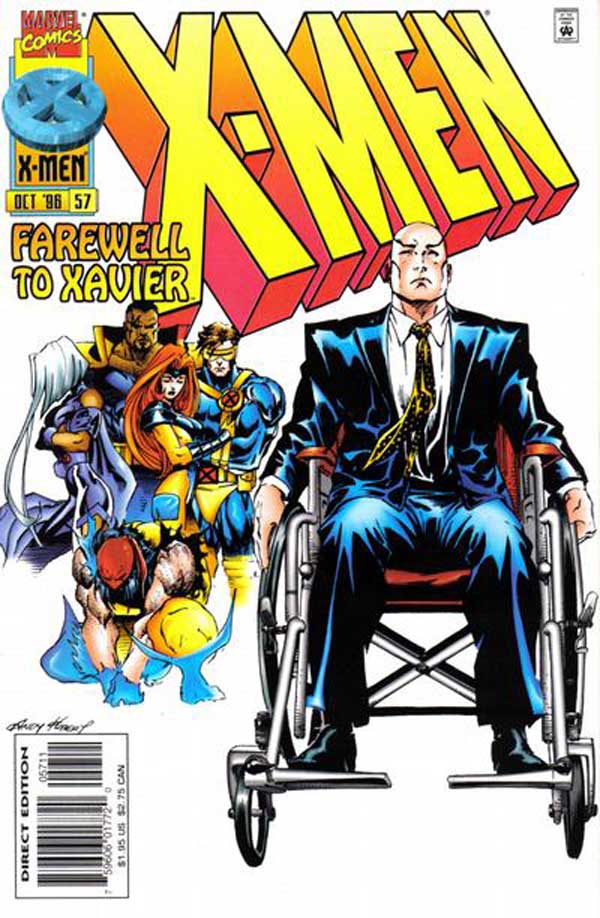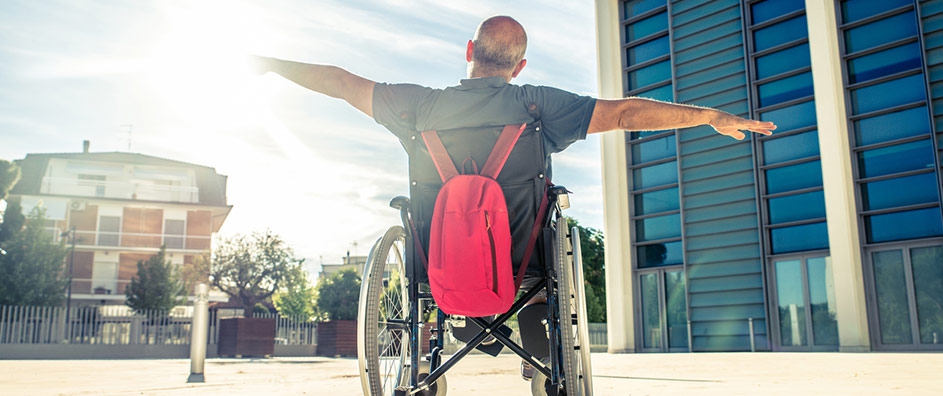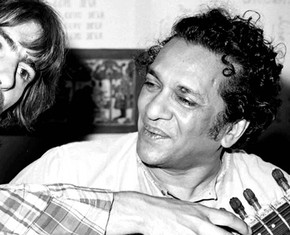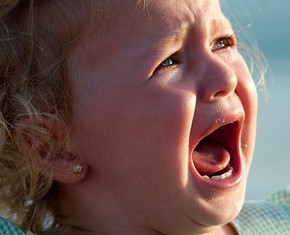The views expressed in our content reflect individual perspectives and do not represent the authoritative views of the Baha'i Faith.
Have you ever noticed that all the bad pirates have hooks, amputations or eyepatches, and the good pirates all look like movie stars?
I owe that insight to Lindsey Row-Heyveld, who wrote an essay called “Reading Batman, Writing X-Men” all about superpowers and disabilities. She points out, in her essay, that “villainous pirates are scraggly, wizened, and inevitably kitted out with a peg leg or hook hand, whereas heroic pirates look like Johnny Depp.”
 Often, the villains in books or movies have some condition that differentiates them from the rest of us—and that difference is used to provoke fear. Some people naturally fear and suspect anyone different, whether in skin color, ethnicity, tribal origin or even any disability, so films and books exploit that tendency. How many villains have you seen that show symptoms of mental illness, for example? This, of course, makes us fear the mentally ill, because they’re different.
Often, the villains in books or movies have some condition that differentiates them from the rest of us—and that difference is used to provoke fear. Some people naturally fear and suspect anyone different, whether in skin color, ethnicity, tribal origin or even any disability, so films and books exploit that tendency. How many villains have you seen that show symptoms of mental illness, for example? This, of course, makes us fear the mentally ill, because they’re different.
In the past, we often labelled people who were different with disparaging names. You’ve probably heard most of them—those words that most people won’t say in polite company any more. Epithets, curses, racial slurs, insults—they’ve all become politically incorrect.
So here’s the question: which word should we use today to refer to a disability?
I grew up, back in the Dark Ages, using the old word “crippled.” Believe it or not, that was the polite term then. In my elementary school, one boy named Steve had a wheelchair, and some of my peers even called him “Crip” or worse, to his face. He didn’t seem to mind. But I learned later that he did mind, terribly. He felt that word was an insult to his whole being, and that people who used it were ignorant and uncaring. He hated that word. Steve thought the people who called him “Crip” saw his wheelchair before they saw him; and that the chair actually prevented them from ever seeing him.
Luckily, my father taught me a good lesson right after I met Steve. He said, when I was about 8 years old, that if I met someone who was “crippled,” I should just come right out and ask “What happened to you?” He told me it was natural to be curious about such things; and that by ignoring them I was pretending not to notice, which could hurt someone’s feelings and lead them to think I wasn’t being truthful or authentic. He said “Just be honest. That way you won’t hurt people’s feelings.” So I asked Steve, when I met him. He said “I was in a car wreck. My parents were killed.”
After that honest, forthright and yet tragic exchange, which broke the ice between us and allowed us to talk straightforwardly, we became good friends. Steve felt like he could talk to me normally, without his disability in the forefront of our conversation.
I’ve thought about Steve a lot lately, because the whole idea of “political correctness” has received so much attention. Half the population seems to hate politically correct speech, and say they “just want to say what they think.” The other half seems to sometimes take this new caution in speech to extremes. The other day I heard one person refer to non-disabled people as “abled.” That seemed like a real stretch to me—but since I’m abled, what do I know?
So I looked up the American Psychological Association’s advice. It says that when you identify someone with a disability, the person’s name or pronoun should come first, and descriptions of the disability should come later. In other words, you might want to say “a man with schizophrenia” rather than “that schizophrenic.” My friend Steve didn’t want to be called a “crip,” because that meant his disability defined him—it became his primary and sometimes his only characteristic. It struck me later that the APA’s advice was the same as my father’s advice—basically, to see the person first and the disability second.
I think today, even though I haven’t seen Steve since elementary school, he probably wouldn’t want to be described as “that wheelchair guy,” but would rather be known as “that guy who uses a wheelchair.” See the difference? First, he’s a person with a soul; and second, much less importantly, he has a disability—which is an identifying characteristic, but certainly not his only one.
All of this comes down, simply, to kindness. If you care about what you say and how it makes other people feel, you will try to be kind—in your speech and in your actions. The Baha’i teachings certainly don’t contain any list of forbidden politically correct words or phrases—after all, words and their meanings constantly change as the language and our awareness changes—but they do ask us all to think of others first; to practice selflessness; and to emphasize kindness in all our dealings with everyone:
O friends, consort with all the people of the world with joy and fragrance. If there be to you a word or essence whereof others than you are devoid, communicate it and show it forth in the language of affection and kindness: if it be received and be effective the object is attained, and if not leave it to him, and with regard to him deal not harshly but pray. The language of kindness is the lodestone of hearts and the food of the soul; it stands in the relation of ideas to words, and is as an horizon for the shining of the Sun of Wisdom and Knowledge. – Abdu’l-Baha, A Traveller’s Narrative, p. 43.
You May Also Like
Comments

















Some science which demonstrates how our thoughts & communication affect us & others is the work of Marasu Emoto as we consist mostly of water.
or mind with moral flaws or actual
villainy; it's an easy and very dependable device for provoking
disrespect, disgust, or fear toward
a fictional character. The worst part
of it is, of course, that we carry those
negative connections into real life,
and opportunists may even make use of that fact for their own ends.
There is also an opposing tradition
in the arts that we should cherish
and expand: the one of "Beauty
And The Beast", "King Kong", friendly ...dragons, "The Hunchback
of Notre Dame", and even "The
Phantom of The Opera" and "Frankenstein". These stories taught
us empathy for the inner nature of the outwardly different or strange.
short people being vertically challenged or dead ones being
metabolically challenged. Maybe
that wouldn't be so tempting to
some of us, and everybody's feelings
would be protected, if we just use
common sense and the Golden Rule:
how would I want to be thought of
and spoken of?
When disability struck me, I lost a great deal and went through years of suffering. I wasn't able to work anymore. That was a terrible blow. Putting ones life back together is extremely difficult, and becoming dependent even more so.
Yet all this taught me much, and I'm still learning more 20 years later. When I became a Baha'i about ...5 1/2 years ago I found a path towards great spiritual healing. I can't say enough about the what the love of God means to me or the chance to serve others.
Thank you again.